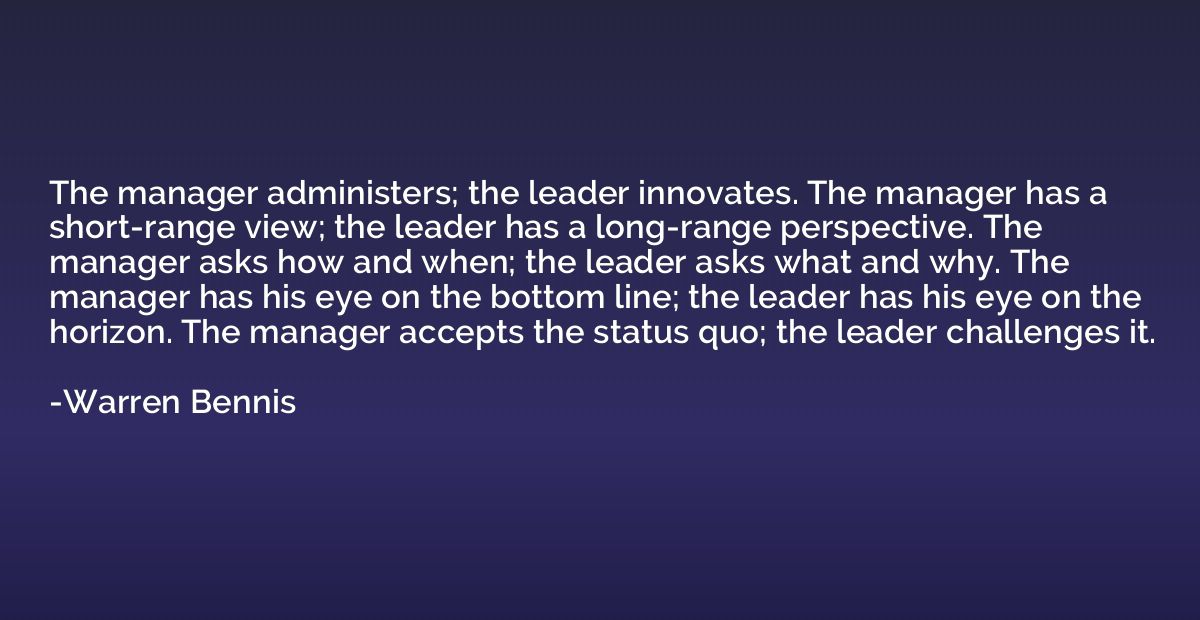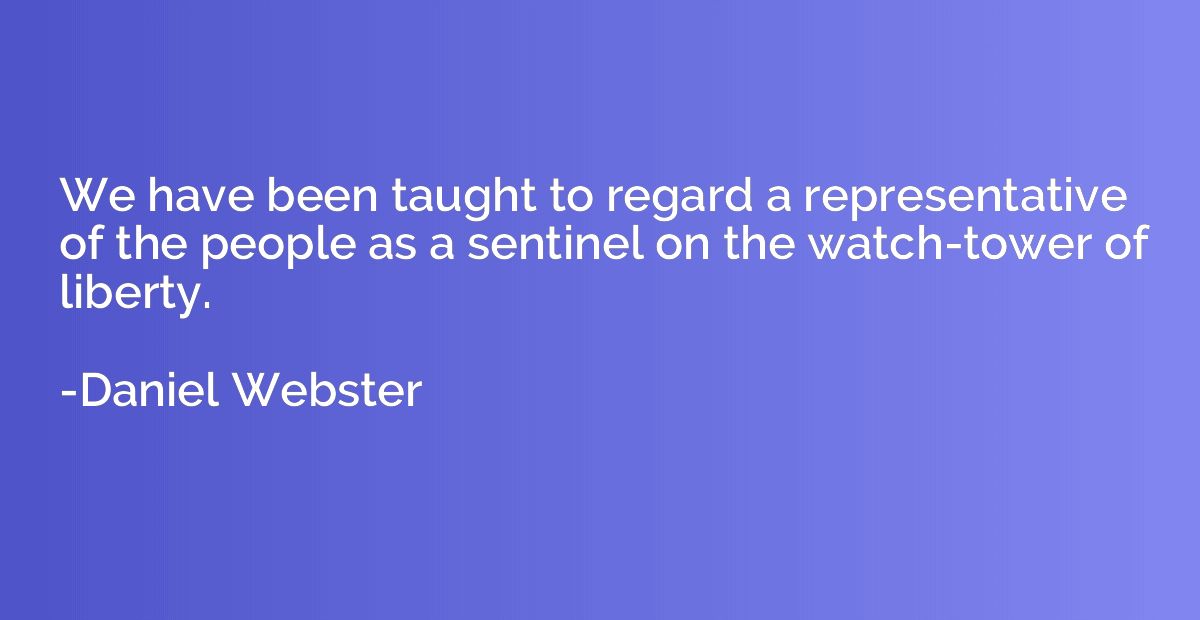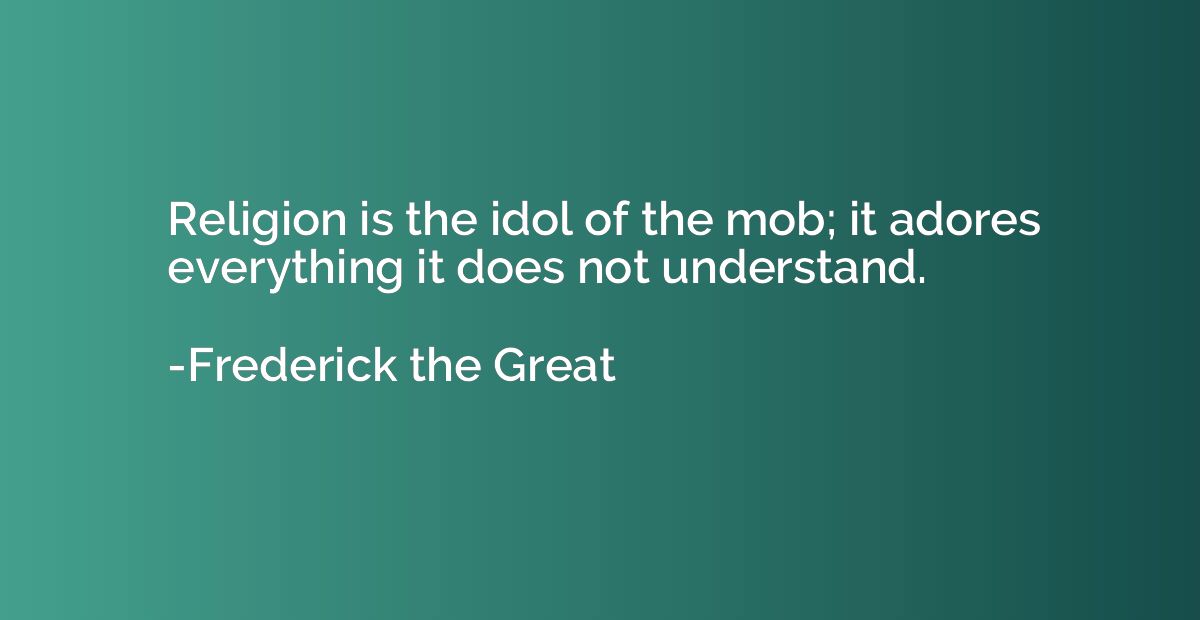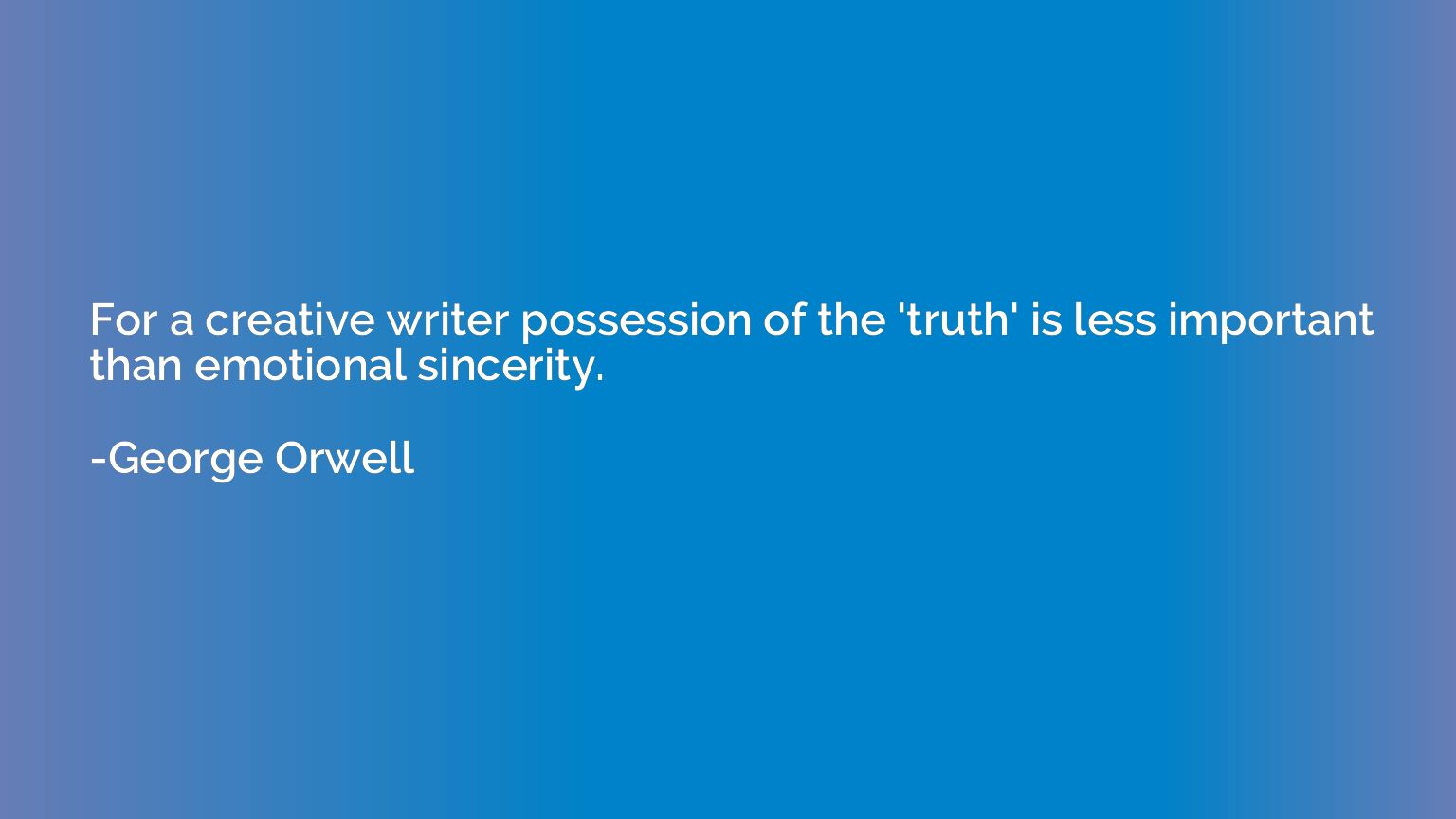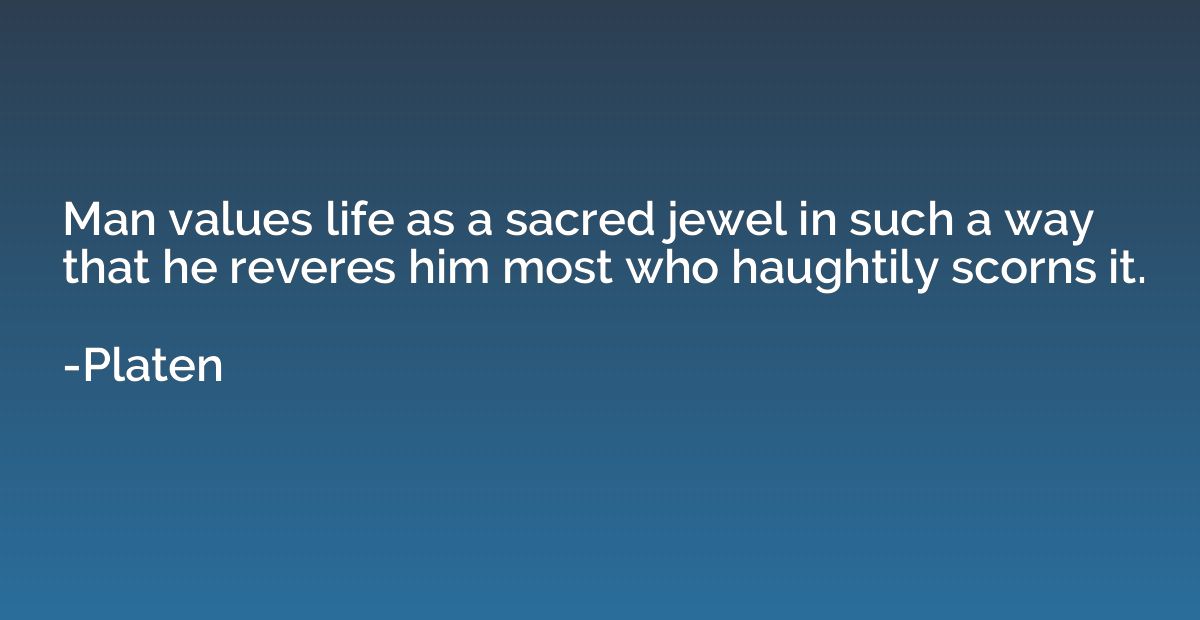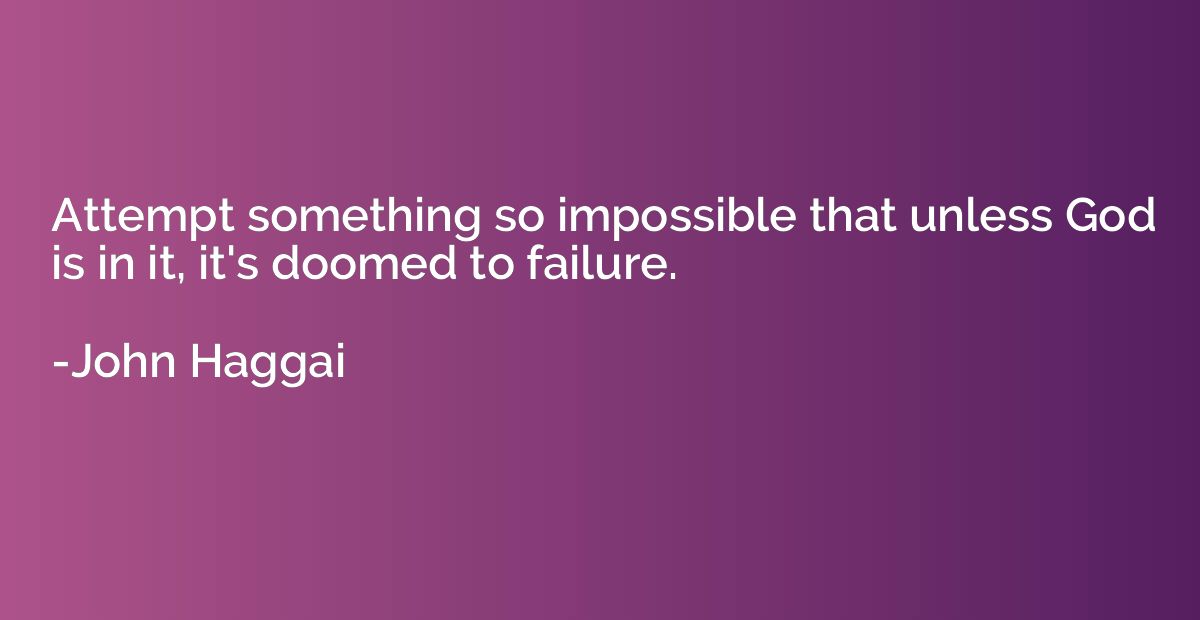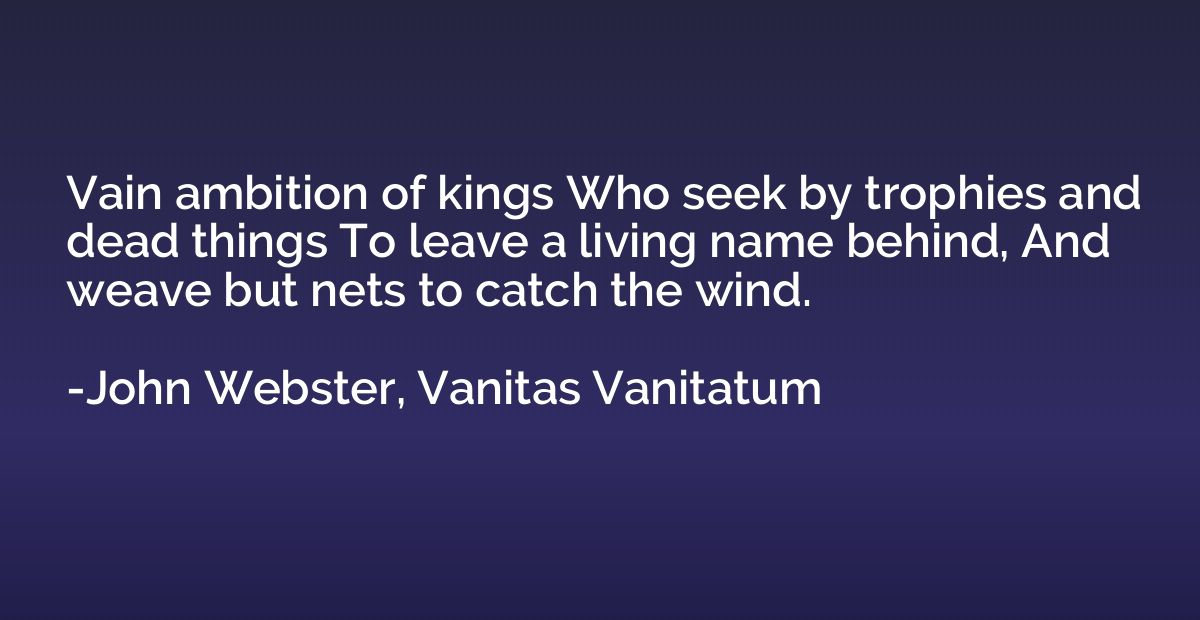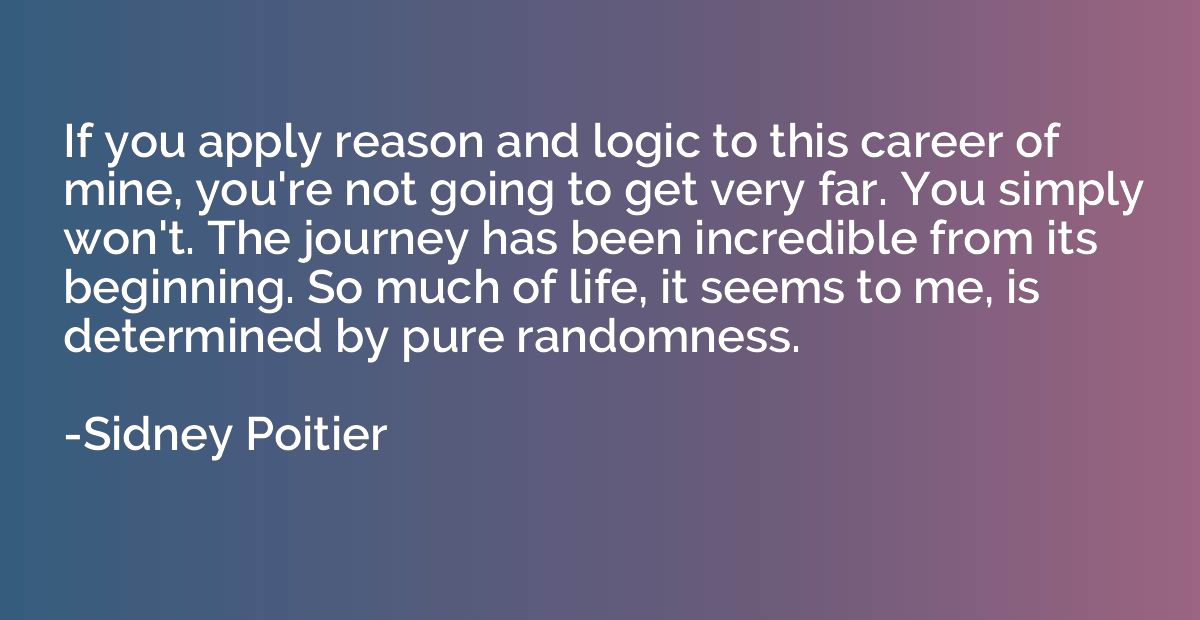Quote by H.P. Lovecraft
Contrary to what you may assume, I am not a pessimist but an indifferentist- that is, I don't make the mistake of thinking that the... cosmos... gives a damn one way or the the other about the especial wants and ultimate welfare of mosquitoes, rats, lice, dogs, men, horses, pterodactyls, trees, fungi, dodos, or other forms of biological energy.
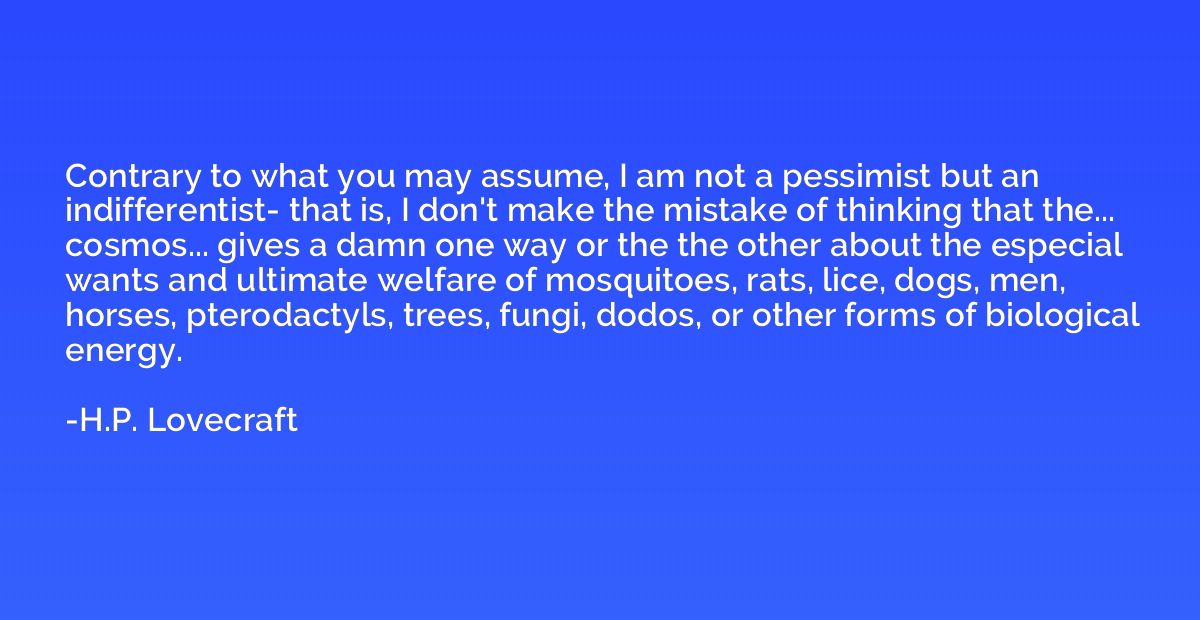
Summary
This quote, attributed to American writer H.P. Lovecraft, expresses an attitude of indifference towards the significance of individual existence in the grand scheme of the universe. Lovecraft argues that the cosmos, being vast and indifferent, does not hold any special concern for the well-being or desires of any living beings, from insects to humans. By identifying as an "indifferentist," Lovecraft suggests that he does not mistake cosmic indifference for pessimism, but rather acknowledges the impartial nature of the universe without attaching personal importance to it.




